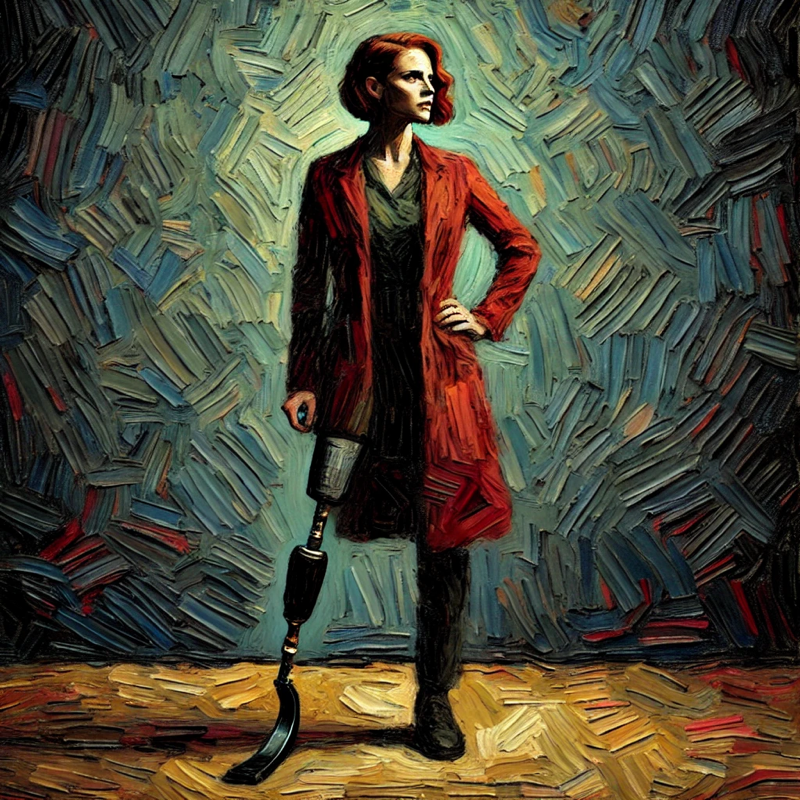The Struggles and Strength of Svetlana Kirilenko
Svetlana Kirilenko, a minor yet compelling character in The Sopranos, faced social exclusion, disability stigma, and cultural bias. Despite these challenges, she remained resilient, pragmatic, and self-sufficient. Her story offers valuable lessons on strength, dignity, and perseverance.

Introduction
Svetlana Kirilenko, a character from The Sopranos, is an immigrant from Russia who faces significant challenges in her life, including the loss of her leg and the struggles of adapting to a new country. Despite these obstacles, she remains a figure of resilience and determination. Her experiences highlight the stigma that people with disabilities, immigrants, and those perceived as outsiders often endure. This post explores the various social barriers she faced, how she coped with them, and what we can learn from her journey.
The Stigma She Faced
Svetlana faced multiple layers of stigma in her life. First, as a Russian immigrant, she had to navigate the challenges of assimilation in a country that often treats newcomers with suspicion. She worked hard to establish herself, yet she was constantly reminded that she was an outsider. Language barriers, cultural differences, and discrimination made her life more difficult.
In addition to being an immigrant, Svetlana also lived with a physical disability. Having lost her leg to illness, she used a prosthetic limb, which led to further discrimination. Many viewed her as less capable or defined her by her disability rather than her intelligence and resourcefulness. In her professional life, she had to work twice as hard to be taken seriously, and in her personal life, she sometimes encountered pity rather than respect.
Another form of stigma she faced was moral judgment. When she became involved with Tony Soprano's family—particularly his uncle, Junior—she was judged for her relationships. People made assumptions about her character and intentions, reducing her identity to rumors rather than recognizing her as a person with depth and dignity.
How She Handled It
Despite these societal pressures, Svetlana remained remarkably strong-willed. She did not let the labels and assumptions define her. Instead, she relied on her resilience, independence, and sharp wit to navigate difficult situations.
She refused to see herself as a victim. Rather than dwell on her struggles, she focused on what she could control. She worked hard, running a successful home healthcare business, showing that her disability did not limit her capabilities. She did not seek sympathy but instead demanded respect through her actions.
Svetlana also handled conflict pragmatically. When confronted with unfair treatment, she chose to move forward rather than become consumed by anger. She did not waste time trying to change people's opinions but instead built a life based on her own values and efforts. Her pragmatic approach to life allowed her to survive in an environment that often sought to undermine her.
Lessons We Can Learn
Svetlana Kirilenko's story offers several key takeaways:
- Resilience Overcomes Prejudice – Society often tries to define people by their challenges, but resilience and hard work can break through those barriers.
- Self-Reliance is Powerful – Rather than seeking validation from others, Svetlana carved her own path, proving that confidence and capability speak louder than words.
- Don't Dwell on Judgment – People will always have opinions, but their views do not have to define your reality. Svetlana understood that and did not let external criticism control her life.
- Strength is in Action, Not Words – She did not waste time complaining about her struggles; instead, she took action and built a life on her terms.
- Adapting is Key to Survival – Change is inevitable, and those who adapt thrive. Svetlana never let circumstances defeat her; she adjusted and moved forward.
Conclusion
Svetlana Kirilenko’s journey is one of resilience and perseverance in the face of stigma. Her ability to rise above prejudice, stay self-reliant, and focus on her goals is inspiring. In a world where many struggle with being judged for their differences, her story reminds us that dignity is not given—it is asserted through strength and action. By learning from her example, we can develop a mindset that overcomes stigma and builds a life of purpose and confidence.
